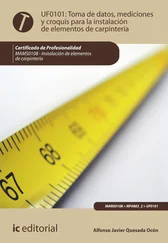Prague quickly learned of De Wet’s presence. He took a suite of rooms and gave champagne parties which were attended by beautiful women and a strange group of men.
Some say that the Gestapo investigated the activities of De Wet, but came to the conclusion that he was just another “crazy Englishman.”
He got to know a beautiful Russian woman. It is reported that he married her, and that she was arrested as his accomplice when the Gestapo got on his trail. It is also reported that she afterwards committed suicide. [Here we have a Russian woman with whom he may have contracted matrimony; this may have been the legitimate proprietress of the Hotel Metropol in Moscow, but if she “committed suicide” during the Gestapo’s interrogation, then there are two possibilities: either she didn’t commit suicide and hadn’t died and was still alive in 1951, or else De Wet was married twice, both times to Russian women. Neither of these two things seems at all likely, and still less likely is the possibility that he aspired to possess and preside over the Moscow Metropol in his capacity as bona fide heir and widower.]
He was familiar to newspaper men. To some of us he offered information—“inside information.”
He was proud to say that he was “on the inside.” But you could not always take this man too seriously.
He had a fine time in Abyssinia.
He went to Addis to fly for the Emperor — he and that world-famous figure Herbert Fauntleroy Julian (“The Black Eagle of Harlem”) who was a strapping African Negro who enjoyed putting seven sorts of fear into the hearts of the natives. [To tell the truth, the absurdities assembled by the German reporter from the Vôlkischer Beobachter seem like the height of good sense next to this English portrayal, especially after the stellar and aerial appearance of the Black Eagle of Harlem, whose true name could not possibly sound any more false or novelistic, so much so that it was undoubtedly authentic; keep in mind that in 1941 there weren’t yet many movies about the war to cause dementia in tabloid newsmen. But Herbert Fauntleroy Julian: who could dream that up?]
My colleague Noel Monks met him at the Hotel Imperial — surely the most cosmopolitan war hotel of all time. Then De Wet and “The Black Eagle of Harlem” were apparently rivals for the favours of the Emperor. Both of them had gone there to fly. But apparently the Emperor had only one communicating plane and most of their time was spent on the ground.
Yes — De Wet enjoyed the Abyssinian scene. It had all the things he loved — colour, adventure, uncertainty.
The Germans say that he had to leave Abyssinia because he fought a duel. I cannot substantiate that story, but I can well imagine that it is true, for De Wet ran into “scrapes” wherever he went.
He was in Spain, too, along with the rest of that brave and laughing crowd of men who will follow a fight to the ends of the earth. He flew against Franco. He used to say that he lost an eye in an air fight.
Later he wrote a book about his adventures, called Cardboard Crucifix .
But … no one quite knew De Wet. Perhaps no one will ever know until this war is over and the full story comes to be written. Some thought him a pleasure-seeking fool. He certainly played the part.
It is possible that this was merely a mask, that behind that swaggering demeanour was a keen, agile brain working for the cause that he thought right.
The Germans described de Wet as “intelligent, unafraid, and talented.”
He was all of those things. He was, in fact, one of the old-time soldiers of fortune who, throughout history, have left Britain to seek adventure.
That was Graham Stanford, writing in his unknown newspaper. As for the other two clippings, the shorter one is curious, and it is also curious that anyone would have kept it:
NO KNOWLEDGE OF SPY
LONDON, Feb. 7 (AP) — British officials asserted tonight they had no knowledge of the activities of Percy Williams Olaf De Wet, 28-year-old Englishman sentenced to death in Germany as a spy.
The case recalled here his book Cardboard Crucifix , which was published in 1939 and dealt with the Spanish civil war.
The third clipping is an advertisement for Crucifix placed by its publisher, Blackwood. The only odd thing about it is something that doesn’t really belong to it: the note written by hand, vertically, on the left. It isn’t entirely legible, at least not to me, but from what I understand of it, the handwriting must be that of someone who knew de Wet personally, someone close to him or his family, since it refers to him as “Hugh,” the first of his Christian names, apparently not often used, even Edkins called him “Oloff” both in person and in his letters. Looked at long and hard, the first line says: “Hugh has just written. I thought it might” (though I wouldn’t swear to the “just”). The sentence does not go on in what’s left of the second line; the clipping was probably larger and the note began and continued further below, in the part later cut off and lost. In that second line — darker, the penstrokes thicker — I can only manage to read, I think, the last four words: “… daughter are quite well.” I can’t make out anything in the third line, that of the farewell and signature. Someone sent this advertisement to someone else, saying something like “So you can see what Hugh has just written. I thought it might interest you. I hope your wife and daughter are quite well.” Impossible to know who this copy belonged to before briefly passing through Ben Bass’s hands, then into mine, and then belonging to Benet, and after January 5, 1993, who knows.
In the first clipping, the rather jovial and not very mournful profile done by the reporter named Stanford, there is something remarkable, over and above the string of storybook elements, the suites, champagne, beautiful women and boozing spies in and around the bars of Prague, the vain, hedonistic, enigmatic and belligerent character of the man portrayed (a combination of Beau Brummell, Blackbeard Teach and the Scarlet Pimpernell — he would have been right at home in the General History of the Pyrates ), not to mention his Russian wife and accomplice and of course the spectacularly flashy figure of the very fabulous, fearsome and fatuous Herbert Fauntleroy Julian or Terror of the Air of Addis Ababa. I mean the tense in which the sketch or article is written — the past tense, as if De Wet had already been executed, were already dead. Though the date is missing, it must be close to that of the trial in Berlin, yet Stanford, perhaps involuntarily but certainly without great sorrow, uses a tense that makes a death sentence the same thing as an execution. Perhaps he knew that for the accusers and judges, there can be no difference between the two. (There was a difference once in 1939, against all the odds, and that’s why I’m here to make trouble.) But still death passed De Wet by, as it had passed Ewart by precisely when it was most likely to notice him, flung into the mud of the front with his lone, defective eye, and pause.
Whether it was true in the mercenary’s case, or a sham adornment, both men appear to have been one-eyed, Ewart by maternal inheritance as I said, but De Wet from a Spanish war wound, according to Stanford. But as I mentioned a few pages back, a book came into my possession by his presumed grandfather or perhaps great-uncle, the Vechtgeneraal Christiaan Rudolf de Wet, which is, naturally, about the war in which he played such a significant part, titled Three Years War (three years, like our war, when the wind swept away the weeks and death did not know how to walk slowly, No sabe andar despacio is what Miguel Hernández said, and it almost never passed by), the English edition dating from 1902. That book’s portrait of the Vechtgeneraal, while not bearing a striking resemblance to his degenerate descendent, does allow for a certain shared family air, or let’s say that no one would doubt their possible kinship on seeing them; there is some similarity in the shape of the eyes and nose, the old man older, of course, with a profuse beard rather than a mannered goatee, his gaze softer or more defeated, he could be a tranquilized Redbeard (he, too, would have had his place in the General History of the Pyrates , which I still read sometimes when I’m under attack by the pirates of contemporary culture who are more like petty thieves disguised as patrons); he can’t yet be fifty in the picture, and who knows if he and his guerrillas had fought some skirmish against Wilfrid Ewart’s great-uncle, Sir John Spencer Ewart his name, who went on to fight in the South African war after having fought at Khartoum, as if he hadn’t had his fill; it’s more than probable that the two great-uncles saw each others’ faces or rather the distant forms that are to be feared, advancing fiercely with their imagined faces and taking aim at each other to fire off a hot or cold bullet that did not in any case find its billet in either; it wouldn’t be strange at all, because on the elder Ewart’s service record appear the places that the younger, more pretentious De Wet reeled off to impress and earn some respect from the fisher of cetaceans, but without taking the trouble to make his pronunciation conform to the Spanish diction he and the dictator had been using until that Anglo-Dutch torrent erupted: Magersfontein, Koedoesberg, Paardeberg, Poplar Grove, Bloemfontein, Waterval Drift, River Vet. And also Driefontein, Blaauwberg, Roodepoort, Wittebergen, Slaapkranz, Retief’s Nek.
Читать дальше












